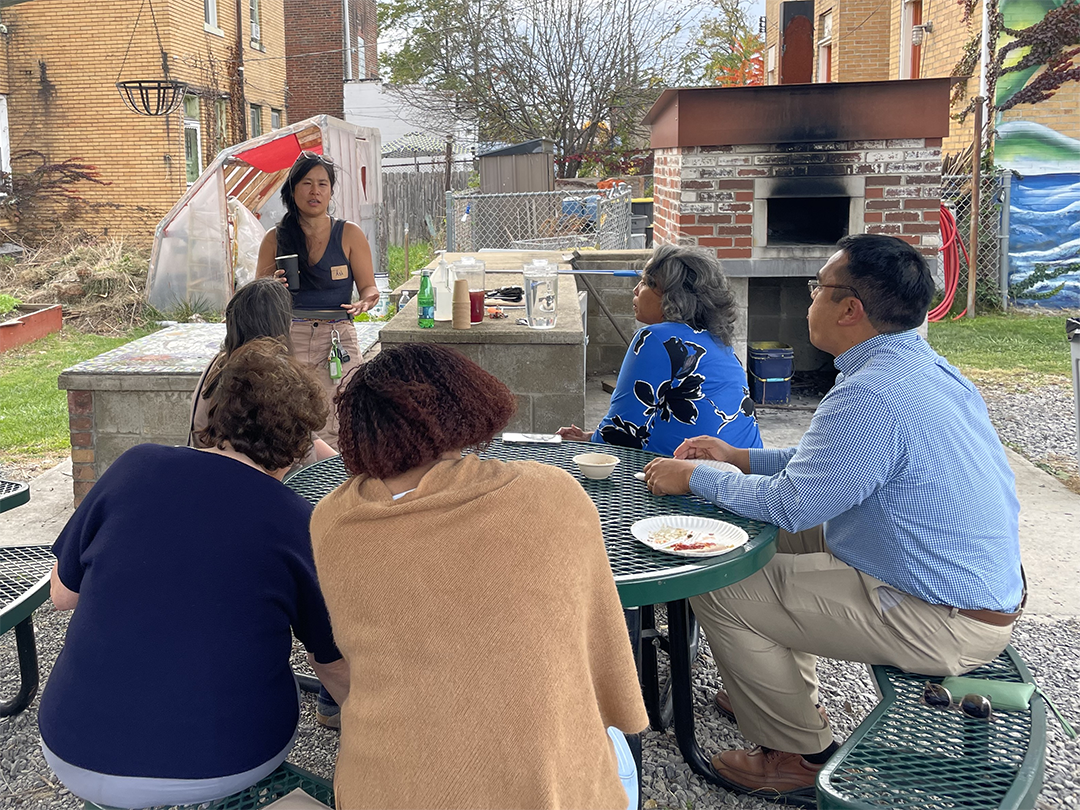If you want to know anything about edible plants and flowers, go on a tour of the garden at Oasis Farm & Fishery with Farm Manager Ash Chan. An educator, cultural organizer and herb-based farmer, Chan welcomed members of the broader R2R Center team to Oasis last month with homemade pizza, iced tea, soup and other goodies – all sourced from the garden at Oasis.

Chan and others at Oasis, a Black-owned and led urban bio-market garden located in Pittsburgh's Homewood neighborhood, teach and apply urban farming techniques and equip youth and adults to grow their own produce and use it when they cook. Much of what is grown at Oasis is comprised of Afro-Caribbean plants and food, such as okra and Lagos spinach, to address the cultural needs of the surrounding neighborhoods.

Oasis has partnered with the R2R Center for the past two years, serving as a research collaborator and engagement site.
David Sanchez, PhD, associate professor at Pitt’s Swanson School of Engineering and R2R Center project lead, has assisted the aquaponics operation at Oasis. This system cultivates fish and plants in a symbiotic environment where they mutually benefit from each other's presence. Sanchez has also conducted studies to evaluate the bioavailability of per- and polyfluoroalkyl substances (PFAS) in lettuce. Known as "forever chemicals,” PFAS are of concern because they don't break down easily in the environment.
Oasis is also a proposed research site for Sanchez’s work on metal-organic frameworks – another part of the R2R Center. He provides faculty leadership for the University’s aquaponics and hydroponics clubs, with the latter housed at Oasis.
The R2R Oasis farm tour and farm-to-table experience was an intimate introduction to the longstanding partnership between Oasis and collaborative research with Sanchez.
“It was truly a joy to visit and share a meal, conversation and learning,” reflects Alison Sanders, PhD, MS, R2R Center director and associate professor of environmental and occupational health at Pitt’s School of Public Health. “Oasis provides a meaningful and inclusive space for people to learn, work, and breathe deeply.”
In addition to the partnership with the R2R Center, Oasis has also hosted three summer interns in 2023 and 2024 as part of the Public Health Undergraduate Scholars Program at the School of Public Health. The students had a unique hands-on opportunity to conduct projects that addressed nutrition literacy and education as well as community engagement.
For more information on the Oasis Farm & Fishery, visit www.oasisfarmandfishery.org.
-Clare Collins